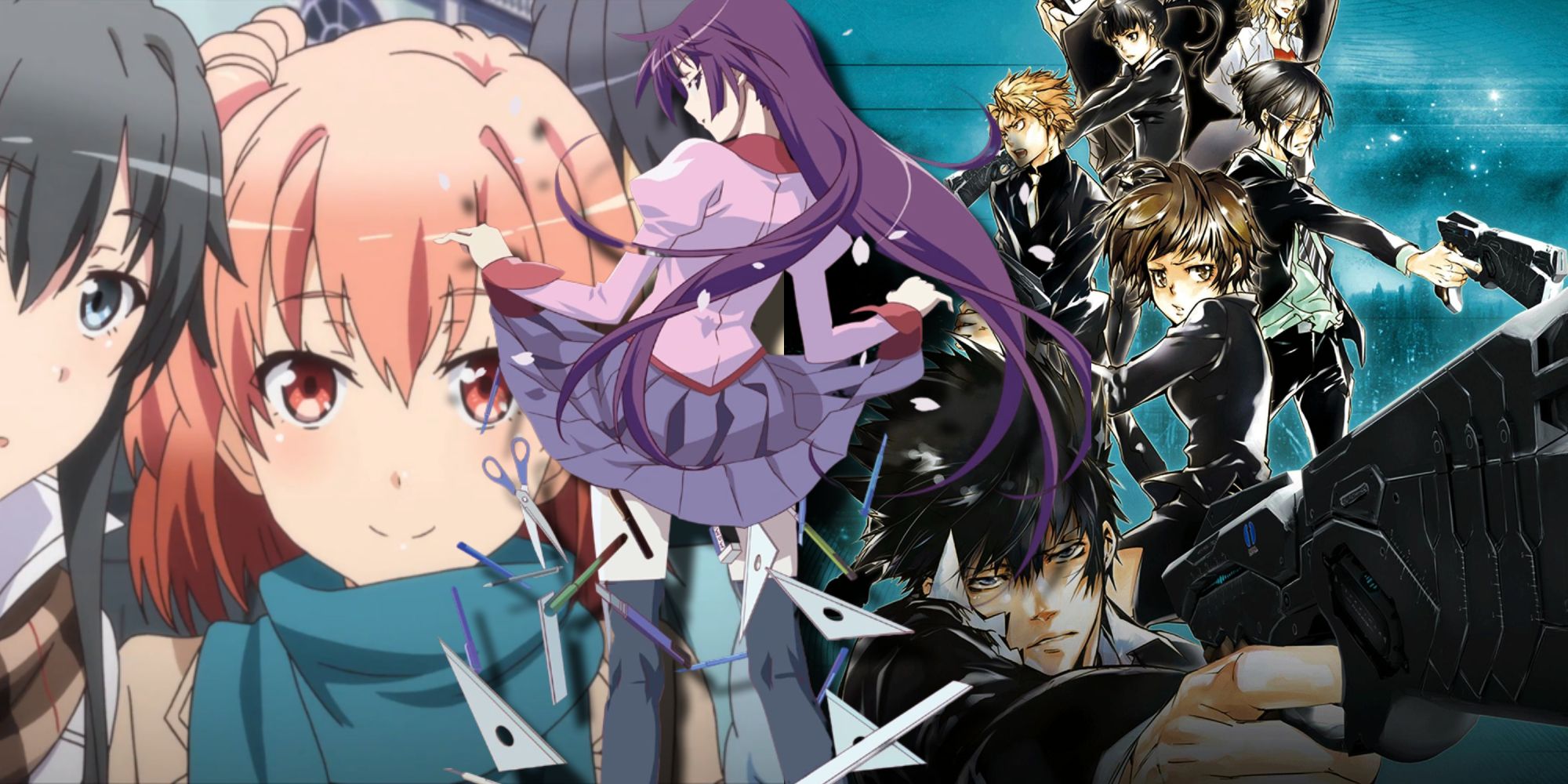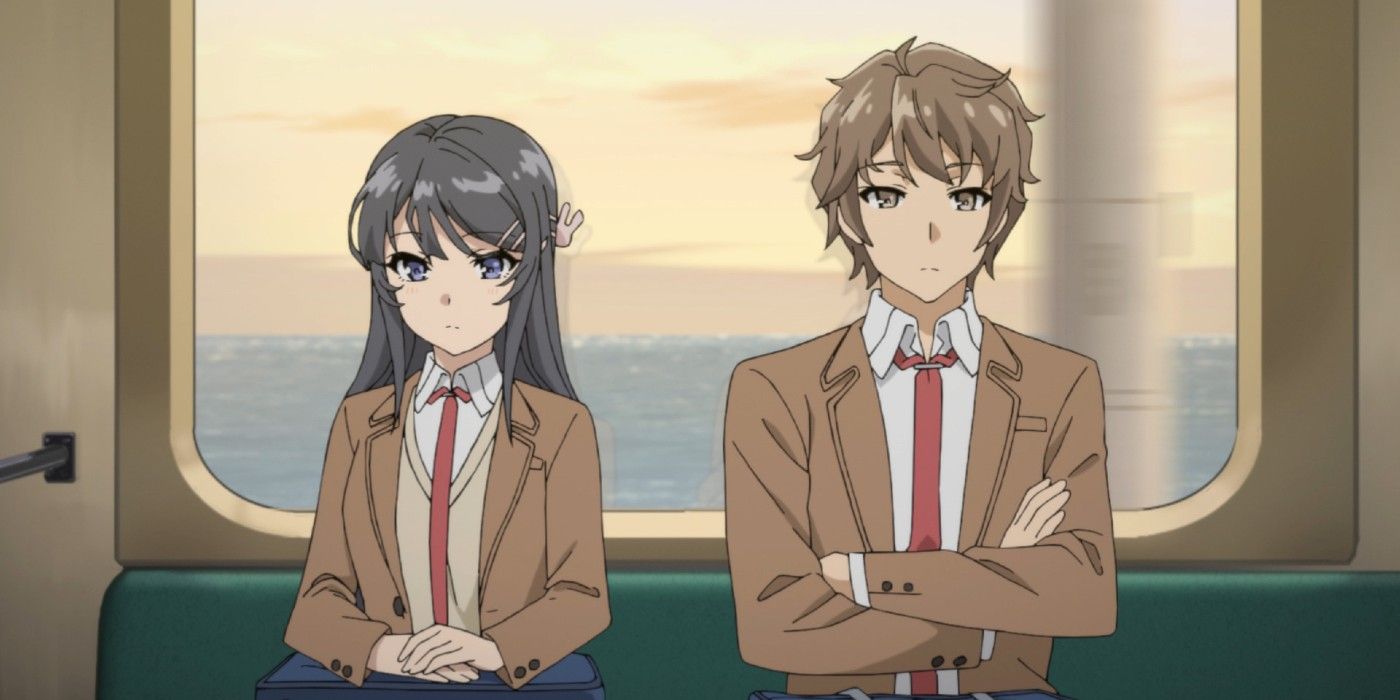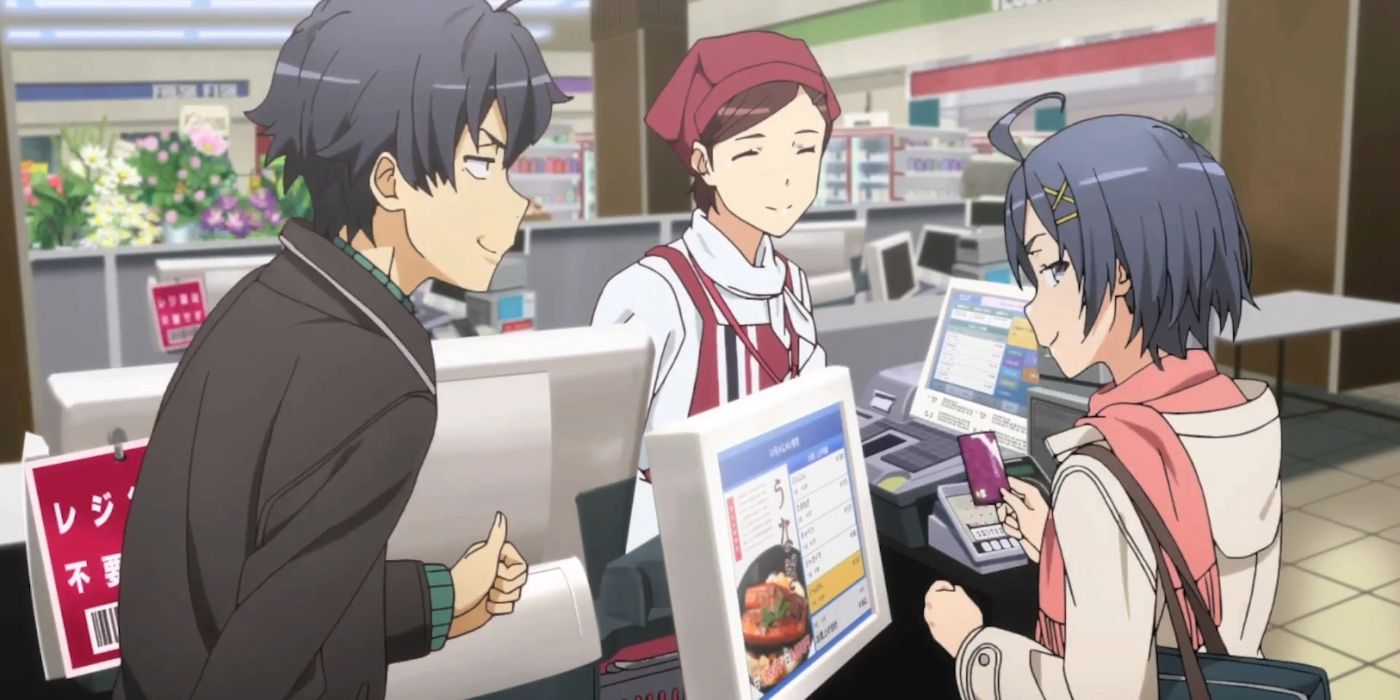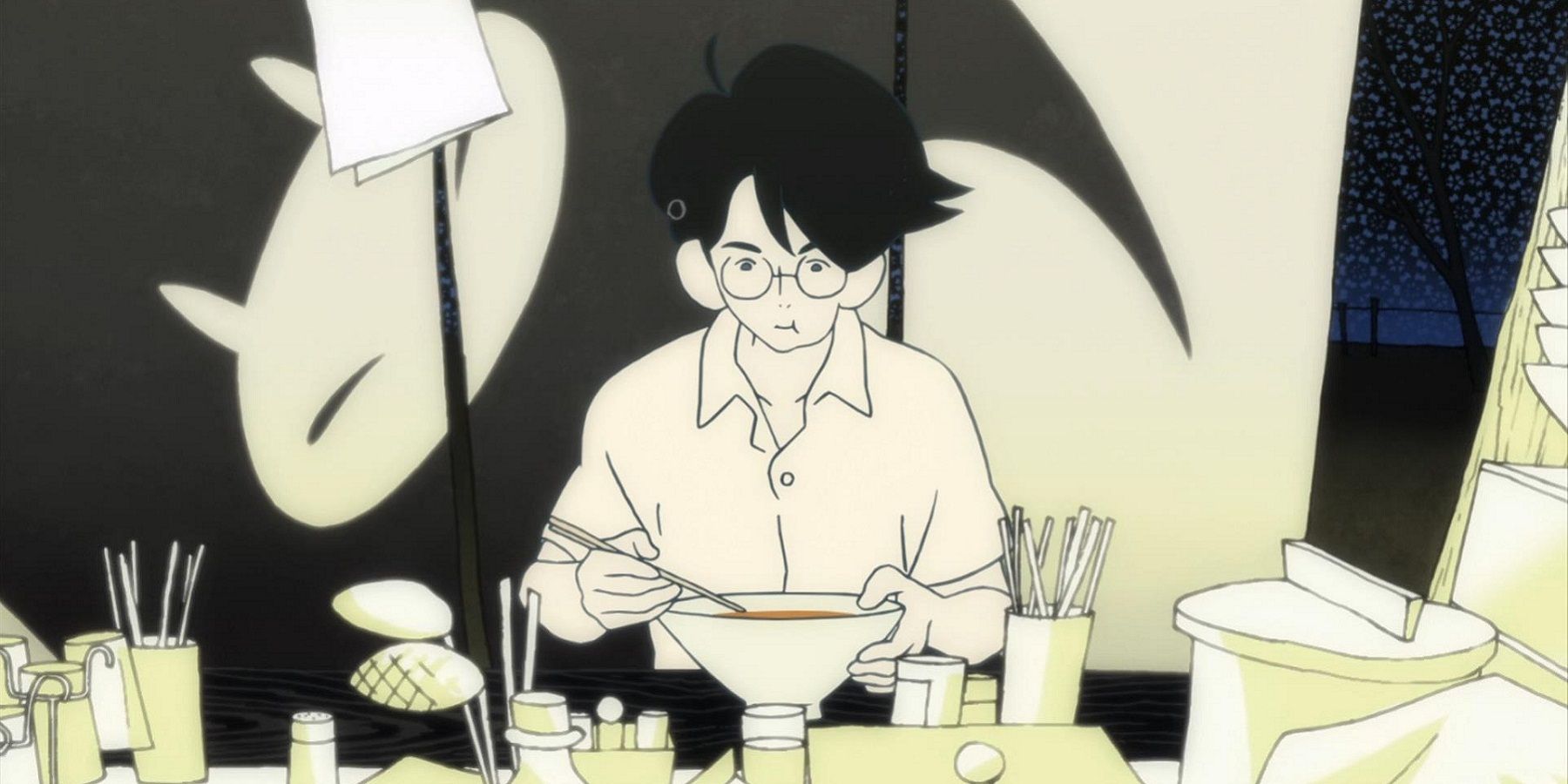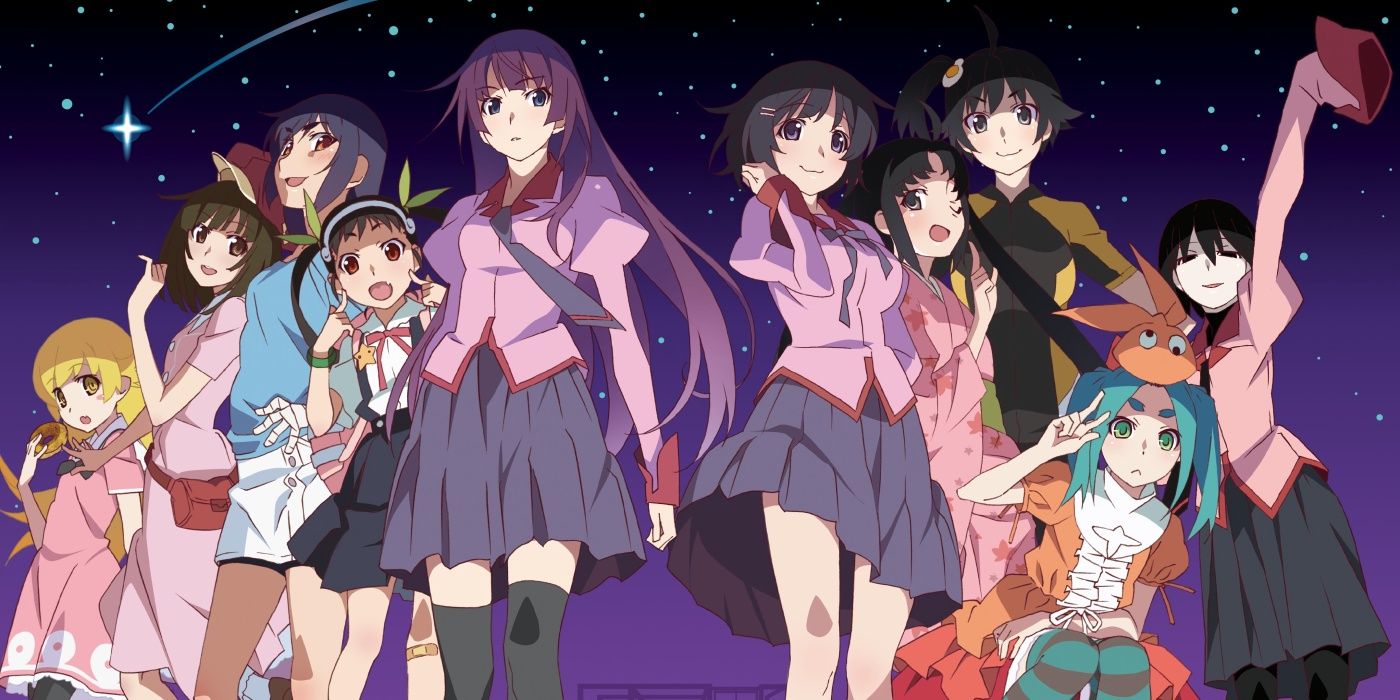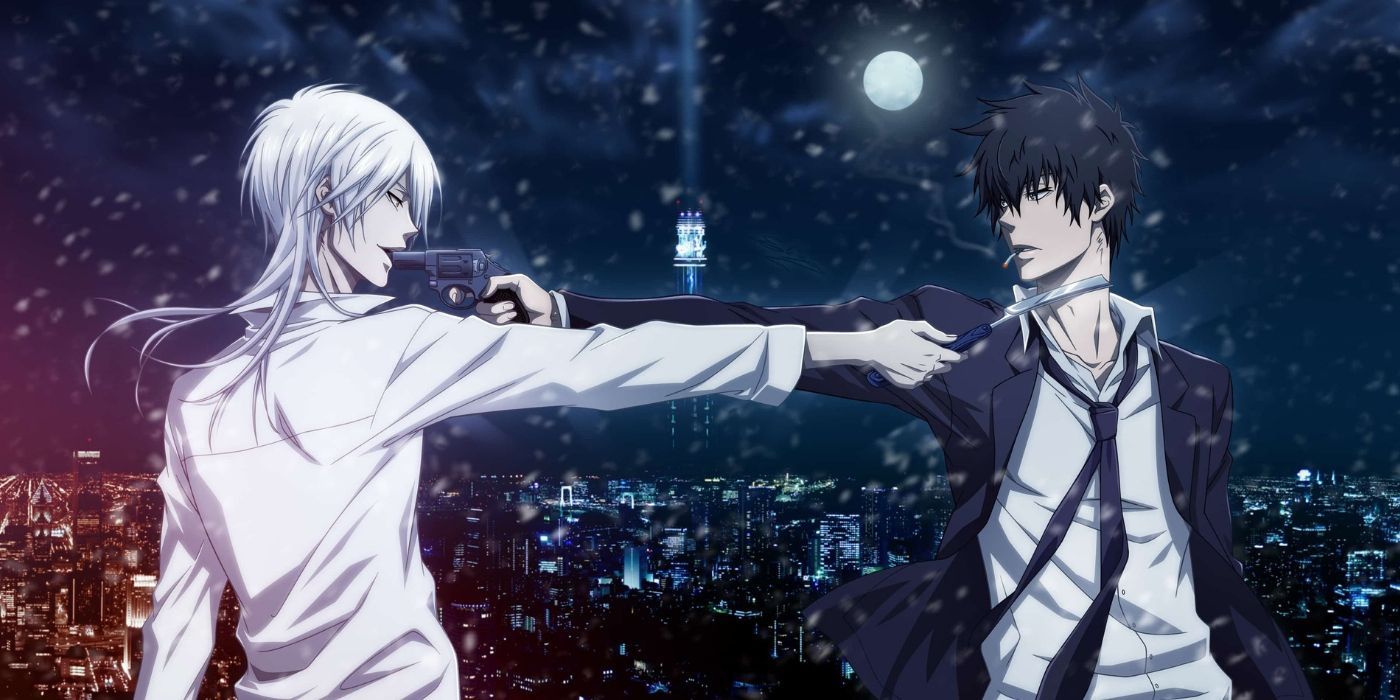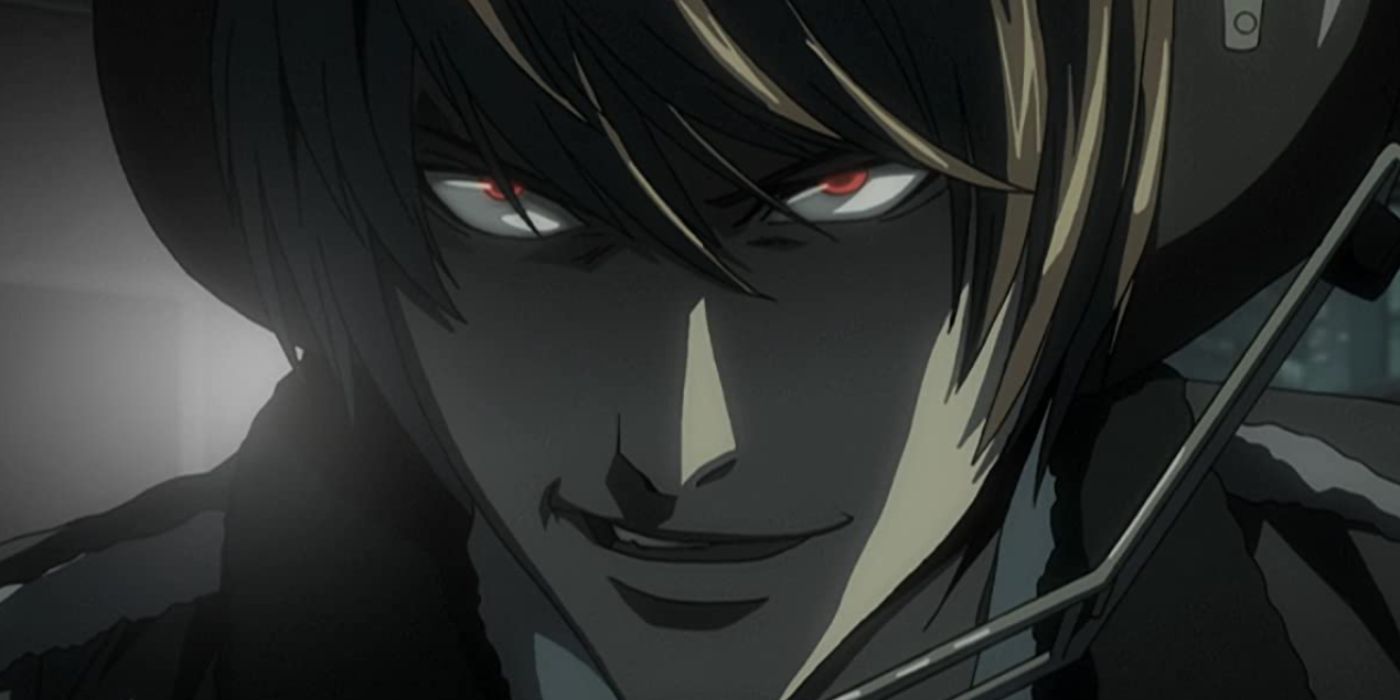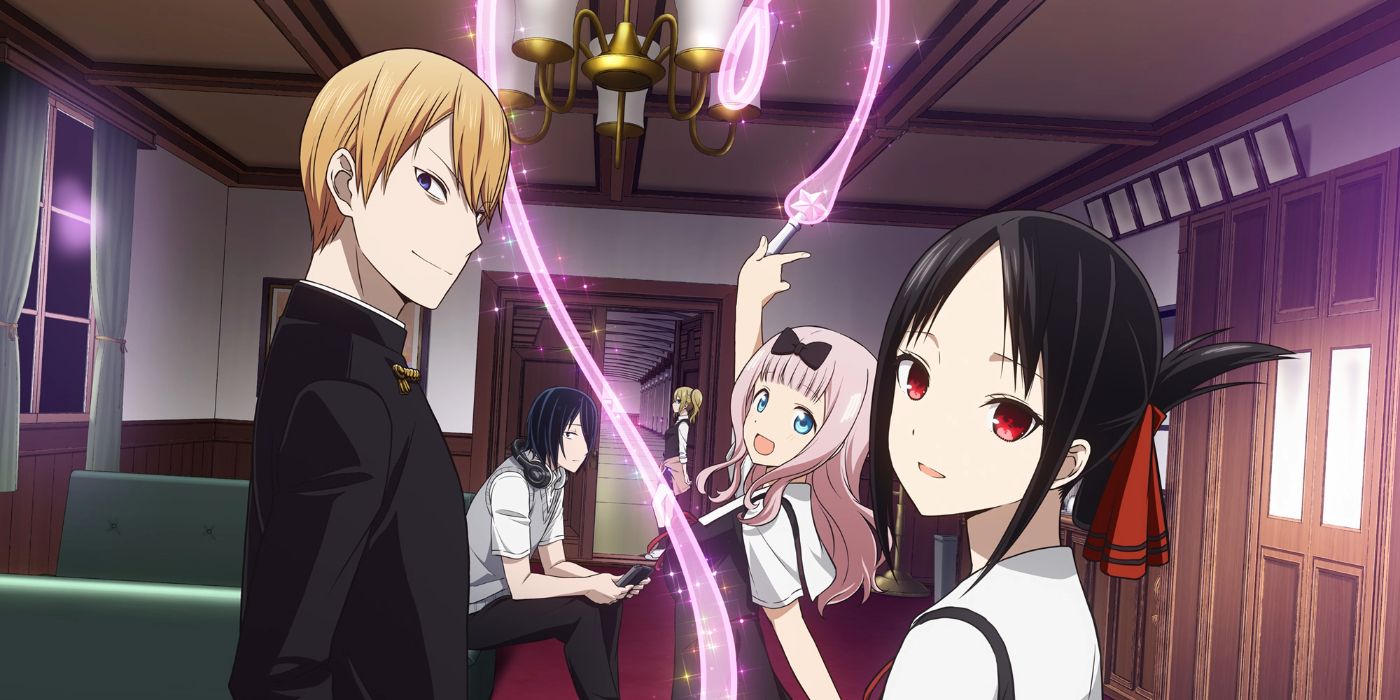Summary
- Sharp dialogue in anime elevates the storytelling, adding depth and maturity to the character interactions.
- Some anime showcase this through grounded storytelling and a focus on mental and political intrigue.
- Other anime accomplish it through clever writing that rewards the viewer for paying attention.
Some of the best shows to watch, anime or otherwise, are often the ones with sharp, witty, or otherwise smart dialogue. Stories that have characters try and outwit one another can be just as entertaining as big, explosive battles, and watching everyone trade clever and thoughtful dialogue is an easy way to inject a level of maturity and overall craft that not all stories manage to convey.
Sharp dialogue is always great to see in anime, and some are better at it than others. The basic hallmark of an anime with sharp dialogue is any anime that has its characters engaging in dialogue based on logic, clever turns of phrase, and anything in between the two, and while an anime doesn’t have to have that to be good, it’s always an easy way to make an anime stand out from its contemporaries.
Anime with that kind of dialogue are almost always praised for their great and inventive writing, and a few, in particular, are especially worth mentioning.
10 Rascal Does Not Dream Of Bunny Girl Senpai Excels At Writing & Dialogue
Anime series by Studio CloverWorks; Based on the light novel by Hajime Kamoshida
Studio CloverWorks Rascal Does Not Dream of Bunny Girl Senpai opens with protagonist Sakuta Azusagawa stumbling upon the strange sight of a girl named Mai Sakurajima walking around dressed like a Playboy bunny and, stranger still, no one other than him noticing her. This is due to Mai suffering from Adolescence Syndrome, a mysterious phenomenon where a young person’s emotional problems cause supernatural events to occur, and the anime quickly becomes an episodic showing of Sakuta and Mai dealing with one new case after another.
Rascal Does Not Dream of Bunny Girl Senpai was a big hit when it first came out, and its writing played a big part in that. Despite the bizarre nature of its story, Rascal Does Not Dream of Bunny Girl Senpai always has its characters engaging in clever dialogue focused on their emotional and psychological states, and the fact that it always tries to give a scientific explanation for its supernatural happenings adds an extra layer to that. It’s a rare anime where supernatural elements are less interesting than the character interactions, and it makes it work exceptionally well.
9 Spice And Wolf Makes Mundane Business Look Fun
Anime series by Brain’s Base; Based on the light novel by Isuna Hasekura
Brain’s Base’s Spice and Wolf stars Kraft Lawrence, a traveling merchant in a medieval fantasy-esque world trying to make enough money to start his own shop. One day, Lawrence has a chance encounter with Holo, a wolf girl who happens to be the physical form of a goddess of the harvest, and as Lawrence takes Holo back to her homeland of Yoitsu, Holo, in turn, uses her gifts, supernatural or otherwise, to help Lawrence increase his profits whenever a business opportunity might arise.
With a focus on the ins and outs of trade business, Spice and Wolf seems like it would be a hard show to sit through, but that couldn’t be further from the case. The supernatural element is one thing, but the depth to which Spice and Wolf goes into the trade business, combined with the engaging and adult dialogue that the principal leads share between themselves and others, makes even the most mundane dialogue sound interesting and clever. Spice and Wolf is set to have a reboot soon, and with any luck, that will sell its clever writing even further.
8 My Teen Romantic Comedy SNAFU Is A Master At Deconstruction
Anime series by Studio Feel; Based on the light novel by Wataru Watari
Studio Feel’s My Teen Romantic Comedy SNAFU stars Hachiman Hikigaya, an antisocial teen who’s forced by his guidance counselor to join his school’s Service Club, essentially a form of volunteer service headed by Hachiman and the two other members, Yukino Yukinoshita and Yui Yuigahama. Hachiman’s cynicism, however, results in nearly every job they undertake having him dress down someone for being far more self-centered and superficial than they let on, the results of which tend to vary from person to person.
What sets My Teen Romantic Comedy SNAFU apart from other slice-of-life anime is the deconstructive nature of its dialogue. The biggest hallmark of My Teen Romantic Comedy SNAFU is its penchant for deconstructing slice-of-life stories through Hachiman’s pointed criticisms and sarcasm, and the fact that the show also occasionally even calls its writing out for its cynicism shows a great degree of self-awareness other shows like it lacks. There are few anime with writing as clever as My Teen Romantic Comedy SNAFU, and that’s given it a stellar reputation among fans and critics for over a decade.
7 The Tatami Galaxy’s Writing Perfectly Complements Its Surreal Nature
Anime series by Studio Madhouse; Based on the novel by Tomihiko Morimi
In Studio Madhouse’s The Tatami Galaxy, the unnamed protagonist is a college student who feels like he’s wasted his past two years in his school’s tennis club. He’s no more social than he was in his youth, he can’t make any progress with his crush, Akashi, even with the local god of matchmaking helping him, and his one friend, Ozu, keeps getting him in trouble with his antics. The protagonist is left wondering how different his life would have been if he had joined a different club, and each episode explores a reality where the protagonist does just that.
The Tatami Galaxy
director Masaaki Yuasa has also directed an episode of the hit Cartoon Network series
Adventure Time
.
With Masaaki Yuasa directing, The Tatami Galaxy is an incredibly surreal story, and its dialogue perfectly goes along with that. In addition to their bizarre quirks and speech patterns, every character in The Tatami Galaxy excels at delivering dialogue that’s both weird and mature with its perspective of love and life, and the speed with which it’s delivered is a bonus, as well. The author of the original book, Tomihiko Morimi, also wrote The Night Is Short, Walk On Girl, also directed by Yuasa, so anyone who enjoyed that film’s style can expect the same in The Tatami Galaxy.
6 The Monogatari Series Rewards The Viewer For Paying Attention
Anime series by Studio Shaft; Based on the light novel by Nisio Isin
Studio Shaft’s Monogatari series stars Koyomi Araragi, a high school student who, sometime before the story, was briefly turned into a vampire, but has yet to fully regain his humanity. One day, he meets Hitagi Senjogahara, an eccentric girl who weighs almost nothing thanks to being afflicted by a supernatural oddity, and after dealing with her issues, Araragi finds himself repeatedly encountering more and more girls with problems that circle back to the supernatural.
Monogatari series creator Nisio Isin is famous for his creative dialogue, and the Monogatari series is the perfect showing of that. Every scene of dialogue in the Monogatari series is filled with references, wordplay, and intelligent and sarcastic remarks from every character involved, and it’s often to the point that certain dialogue won’t make any sense without an understanding of the original Japanese text. The writing in the Monogatari series is as clever as it is dense, and with Monogatari soon set to continue with Off & Monster Season, there’s plenty of room for that to be shown off even more.
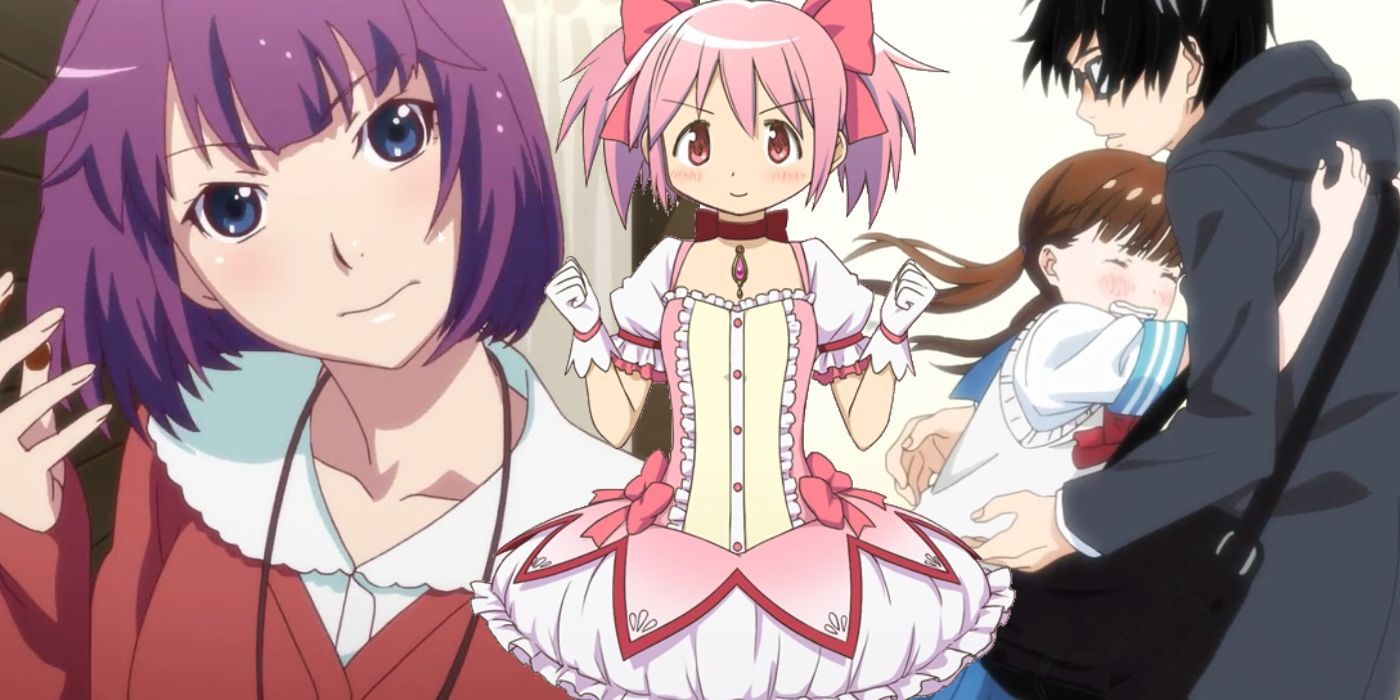

10 Best Studio Shaft Anime
Studio Shaft has been led by directors Shinbo Akiyuki, Oonuma Shin, and Oishi Tatsuya towards creating an impressive collection of anime series.
5 Psycho-Pass’ Writing Perfectly Lends Itself To Its Philosophical Leanings
Anime series by Production I.G; Written by Gen Urobuchi
Production I.G’s Psycho-Pass is set in a dystopian future where Japan has adopted the Sibyl System, a biomechatronic computer network that can judge how likely a person is to commit a crime. Inspectors and the boxed crook Enforcers are tasked with dealing with latent criminals before they have a chance to commit any crimes, and rookie Inspector Akane Tsunemori quickly learns that things are nowhere near as black and white as she’s been led to believe.
Psycho-Pass
writer Gen Urobuchi is also the writer and co-creator of
Madoka Magica
.
Thanks to being written by Gen Urobuchi, Psycho-Pass is filled to the brim with great writing and dialogue. In addition to having a cast made up entirely of adults, Psycho-Pass always employs clever dialogue to both flesh out the cast and discuss the themes of morality that the series revolves around, with many scenes even having characters directly quote philosophers to support their points while also acknowledging how that doesn’t automatically make someone smart. The series has just enough self-awareness for its writing to not be too preachy, and that does a lot to sell its overall quality.
4 Code Geass Brilliantly Combines Politics With The Super Robot Genre
Anime series by Studio Sunrise; Directed by Goro Taniguchi
Studio Sunrise’s Code Geass stars Lelouch vi Britannia, the former prince of Britannia who was banished by his father along with his sister, Nunnally, for calling him out on his failure to save his mother from death. When Lelouch gains a Geass, a mysterious power that lets him brainwash anyone he looks at, Lelouch decides to use his power to become the vigilante Zero and slowly take down Britannia to avenge his mother and create a better world for Nunnally.
Code Geass is one of the most famous mecha anime to come out in the past decade, and its writing plays a big part in that. The characters in Code Geass are constantly engaging in mind games and well-crafted discussions of politics and the varying morality of their actions, so there’s always a degree of cleverness to its writing other anime tend to lack. The fact that it does this while adhering to the super robot genre also adds to the overall campiness of the story, and it results in Code Geass’ writing still being great over a decade later.
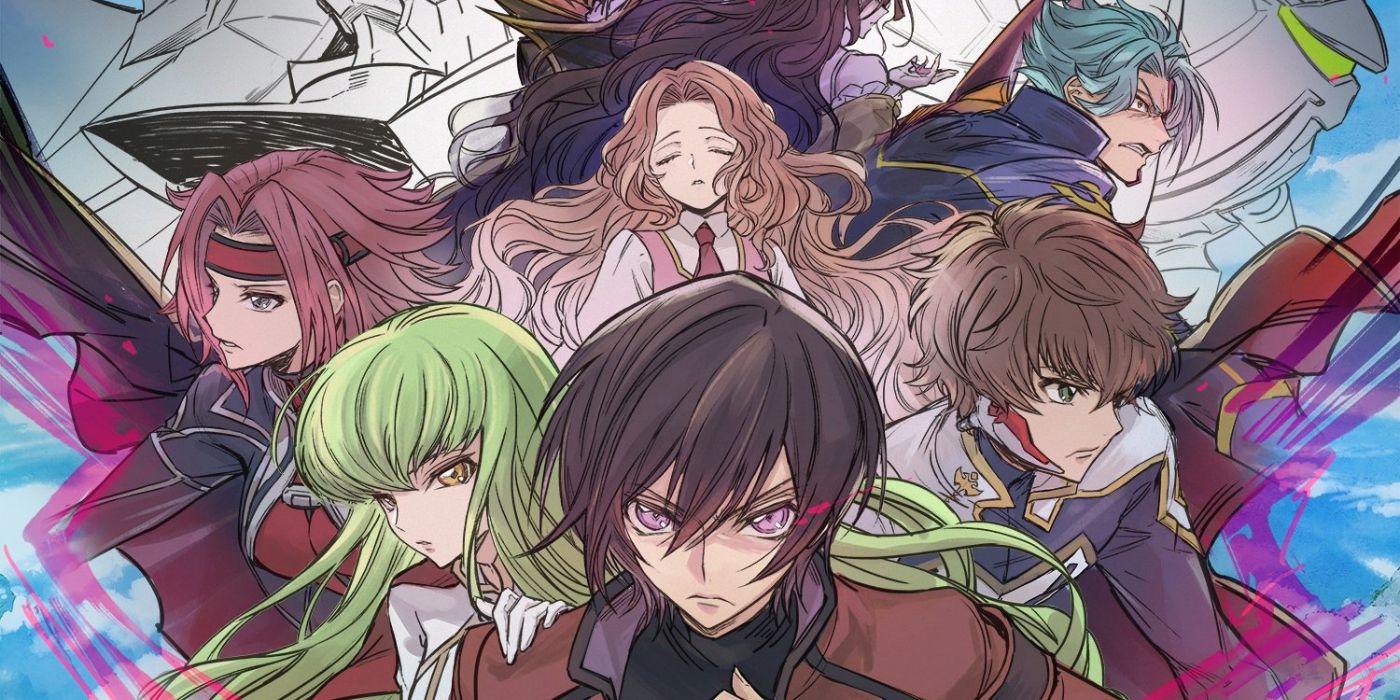

Critically Acclaimed Mech Series Returns With New Sequel Movie
Code Geass will receive yet another film scheduled in 2024 that will follow a different story to that of the original anime.
3 Death Note’s Mind Games Have Made It One Of Anime’s Most Iconic Shows
Anime series by Studio Madhouse; Based on the manga by Tsugumi Ohba & Takeshi Obata
Studio Madhouse’s Death Note stars Light Yagami, a teen prodigy who, one day, finds the titular Death Note, a notebook that can kill anyone whose name is written in it. After learning just how real the Death Note is, Light decides to use it under the alias of Kira to purge the world of criminals and be seen as a God, but his actions force him into conflict with L, the world’s greatest detective and the first person Light’s met who can match his intellect.
Death Note is famous for its psychological and thriller elements, and it’s easy to see why. The characters in Death Note are constantly playing mind games and trying to plan around even the smallest suspicions they have about their enemies, and that always results in a lot of clever and overall intelligent dialogue and monologues where the viewer is never entirely sure which direction things will go in. There are very few anime with dialogue as well-crafted as Death Note, and almost 20 years later, that idea hasn’t changed in the slightest.
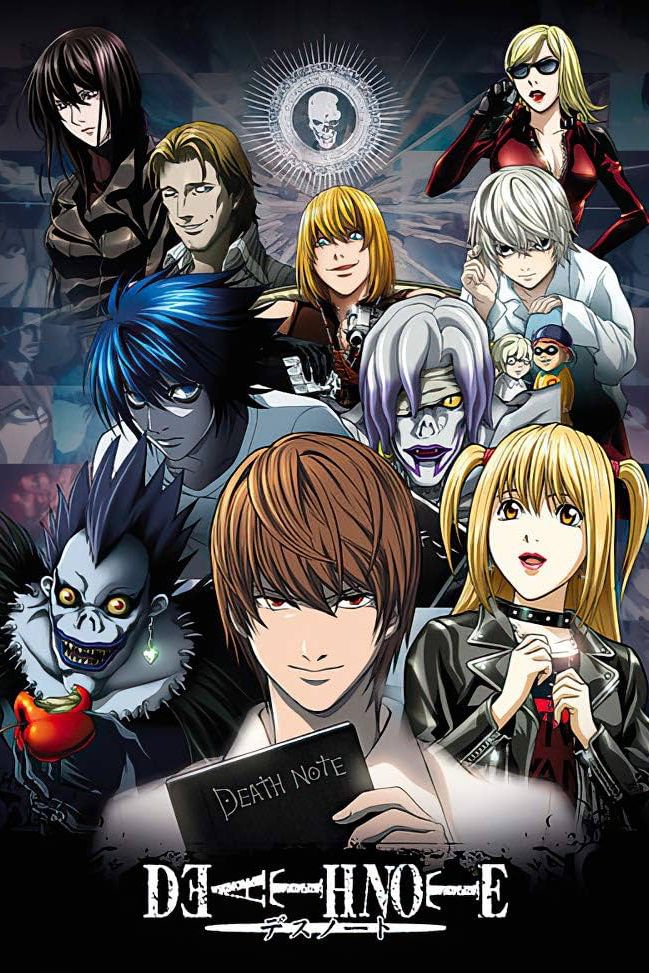

Death Note
- Created by
- Takeshi Obata , Tsugumi Ohba
- TV Show(s)
- Death Note
- Character(s)
- Light Yagami , L Lawliet , Ryuk , Misa Amane , Near (Death Note) , Mello (Death Note) , Teru Mikami , Minoru Tanaka
2 Kaguya-Sama: Love Is War Perfectly Combines Romance With Mind Games
Anime series by A-1 Pictures; Based on the manga by Aka Akasaka
In A-1 Pictures’ Kaguya-sama: Love is War, student council heads Miyuki Shirogane and Kaguya Shinomiya are in love with each other, and they’ve spent enough time together to be sure that their feelings are mutual. Because of their pride and other issues, however, they both feel like it would be humiliating to be the one to confess their feelings, so they continually engage in schemes to try and force the other person to confess first, with their friends completely oblivious to their actions, all the while.
Kaguya-sama has received tremendous praise since its premiere, and the quality of its writing has played a big part in that. The constant mind game Kaguya and Miyuki engage in, combined with other slice-of-life elements, results in dialogue that’s always clever in its execution, and the fact that the show is willing to acknowledge how unnecessary their actions are while highlighting the underlying emotional reasons behind them adds an extra layer of quality to the writing. Romance and psychological drama are two genres that would seem incompatible, but Kaguya-sama does a great job of making them work together.
1 The Melancholy Of Haruhi Suzumiya Is Still A Masterclass In Dry Wit
Anime series by Kyoto Animation; Based on the light novel by Nagaru Tanigawa
Kyoto Animation’s The Melancholy of Haruhi Suzumiya stars Kyon, a sarcastic high schooler who finds himself drawn to the eccentric Haruhi Suzumiya. One day, Haruhi forces Kyon to join the SOS Brigade, a club of her own design with the goal of discovering supernatural oddities in the world. The irony in that, however, is that all of the other members are the exact supernatural oddities Haruhi has been searching for who have gathered to observe Haruhi and her godlike powers, all of which Haruhi is kept blissfully unaware of.
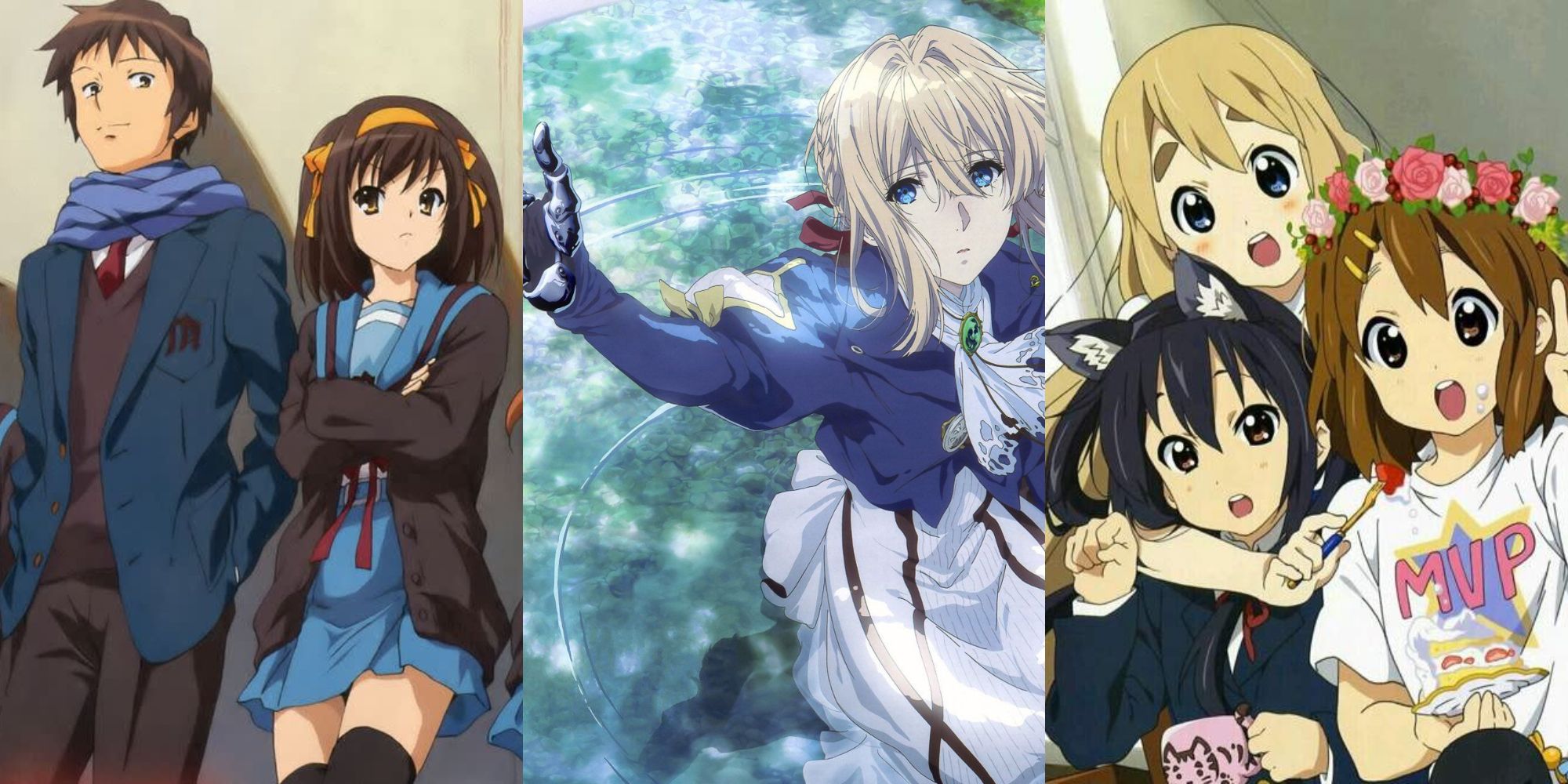

10 Best KyoAni Anime
Kyoto Animation is one of the most iconic anime studios around, famous for its incredible romance anime, but its portfolio goes beyond that.
Even with all the anime that have come out since its initial release, no anime has ever topped the sharp dialogue of The Melancholy of Haruhi Suzumiya. Kyon’s constant use of sarcasm and dry humor always lends itself to thoughtful and engaging dialogue and monologues, no matter the situation, and it’s especially strong whenever contrasted with Haruhi’s comparatively nonsensical dialogue. The snappiness and overall wit of The Melancholy of Haruhi Suzumiya’s writing still holds up after almost 20 years, and it easily stands as the best anime with sharp dialogue.
This story originally appeared on Screenrant

